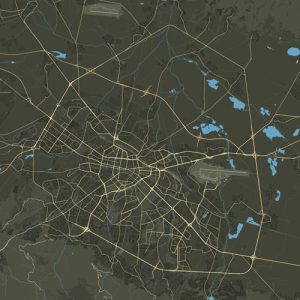On September 15, 1939, against the backdrop of escalating tensions in World War II, the Bulgarian government made a significant announcement, declaring a policy of neutrality. This decision aimed to steer clear of direct involvement in the conflict. In August of the same year, Bulgaria solidified its stance by entering into a non-aggression pact with both Germany and the USSR.
Following these diplomatic maneuvers, Bogdan Filov assumed the presidency of the new office on February 16, 1940, ushering in a period of leadership during a turbulent era. However, external pressures, particularly from Germany and the USSR, influenced Bulgaria’s foreign policy decisions. With the consent of Great Britain, Bulgaria entered into the Craiova Agreement of 1940, leading to the return of Southern Dobrudja.
On March 1, 1940, Bulgaria further aligned itself with Axis powers by signing the Treaty of Accession to the Tripartite Pact, joining Germany, Italy, and Japan. Despite these affiliations, Bulgaria initially refrained from direct military involvement, even as hostilities erupted in the Balkans on April 6, 1941.
Following the capitulation of Yugoslavia and Greece, Bulgaria expanded its territorial holdings, gaining control over the Moravian Region, Eastern Vardar Macedonia, Eastern Aegean Macedonia, and Western Thrace. However, Bulgaria’s role in the war remained somewhat symbolic, as its troops were not deployed to the Eastern Front, despite the German attack on the Soviet Union on June 22, 1941.
Amid shifting alliances and international dynamics, Bulgaria maintained diplomatic relations with the USSR throughout the conflict. Nonetheless, on December 12, 1941, Filov’s government declared a “symbolic” war against the United States and Great Britain, aligning with Axis interests while avoiding direct confrontation on the Eastern Front.
During the tumultuous period of World War II, Bulgaria stood out among Axis powers as the sole country where a partisan movement emerged. In July 1942, the Bulgarian Workers’ Party took a significant step by establishing the Patriotic Front, a coalition aimed at resisting Axis influence. This alliance gained further momentum with the formation of the National Committee of the Patriotic Front in August 1943.
One of the defining moments came in 1943 when Bulgaria intervened to prevent the deportation of thousands of Bulgarian Jews to German concentration camps, a courageous act amidst the atrocities of the Holocaust. However, on August 28, 1943, the sudden death of Tsar Boris III marked a pivotal turning point. In contravention of the Constitution, a regency was established, comprising Bogdan Filov, Prince Kiril Preslavski, and General Nikola M. Mihov, who governed on behalf of the young Tsar Simeon II.
This transition in leadership coincided with significant developments on the international stage. On September 14, 1943, the regency appointed a non-partisan cabinet led by Prime Minister Dobri Bozhilov, signaling a shift in Bulgaria’s political landscape. Yet, as the conflict escalated, Bulgaria faced the harsh reality of wartime bombings, with Anglo-American air raids targeting Sofia and other urban centers at the end of 1943 and the beginning of 1944. These bombings underscored the increasing pressure and volatility faced by the Bulgarian populace as the war raged on.
The ensuing political turmoil precipitated the establishment of a new non-partisan government, helmed by Prime Minister Ivan Bagryanov, which governed from June 1 to September 2, 1944. Faced with the looming prospect of Soviet intervention, Bagryanov’s administration initiated negotiations in Ankara and Cairo with Great Britain and the United States, seeking their assistance in orchestrating a withdrawal from the war.
As part of this diplomatic maneuvering, a government representing the legal opposition emerged, with Konstantin Muraviev assuming the role of prime minister from September 2 to 9, 1944. This transitional government promptly declared a policy of neutrality and commenced the withdrawal of Bulgarian occupation forces from Yugoslavia and Greece.
However, events took a dramatic turn on September 5, 1944, when the Soviet Union declared war on Bulgaria. Subsequently, Bulgarian territory was swiftly occupied by Soviet troops, culminating in the September 9 coup d’état, which marked a pivotal moment in the country’s history.
On September 9, 1944, a government representing the Patriotic Front took control, with Kimon Georgiev, leader of the “Zveno” political circle, at its helm. This marked the inception of a new political order characterized by a people’s democratic system, with the Bulgarian Workers’ Party (Communists) assuming a dominant role. The presence of the Soviet army in Bulgaria during this period, from September 8, 1944, to December 14, 1947, was instrumental in solidifying and maintaining the authority of the new regime.
To address perceived wartime transgressions, an ordinance-law was enacted to facilitate the trial of individuals implicated in Bulgaria’s involvement in the global conflict. A total of 2,730 death sentences were handed down, while 1,305 individuals received life imprisonment, and 4,312 were sentenced to terms ranging from 20 years to one year in prison. Additionally, 808 individuals were subject to conditional sentences, while 1,516 were acquitted, and 451 cases were closed.
Among those sentenced were prominent figures such as regents Prince Kiril Preslavski and Bogdan Filov, as well as former Prime Ministers Ivan Bagryanov and Dobri Bozhilov. The scope of the trials encompassed ministers, senior civil servants, palace advisors, representatives of the people, high-ranking military and police officials, police operatives, members of political organizations, journalists, gendarmes, mayors, priests, and educators.

